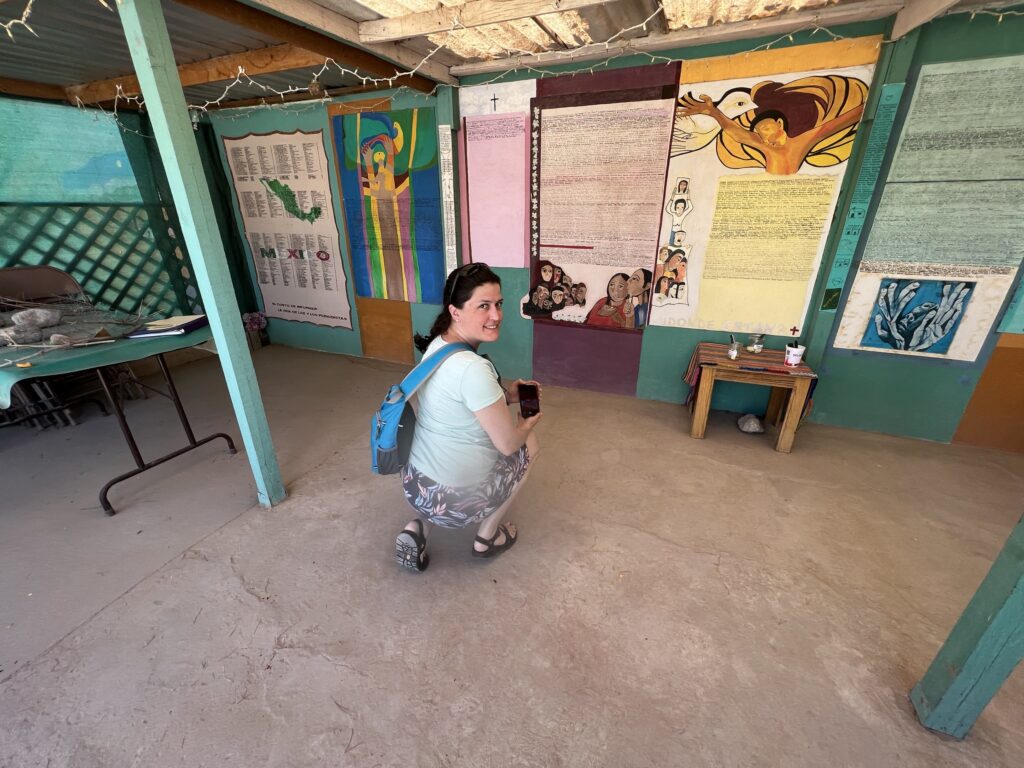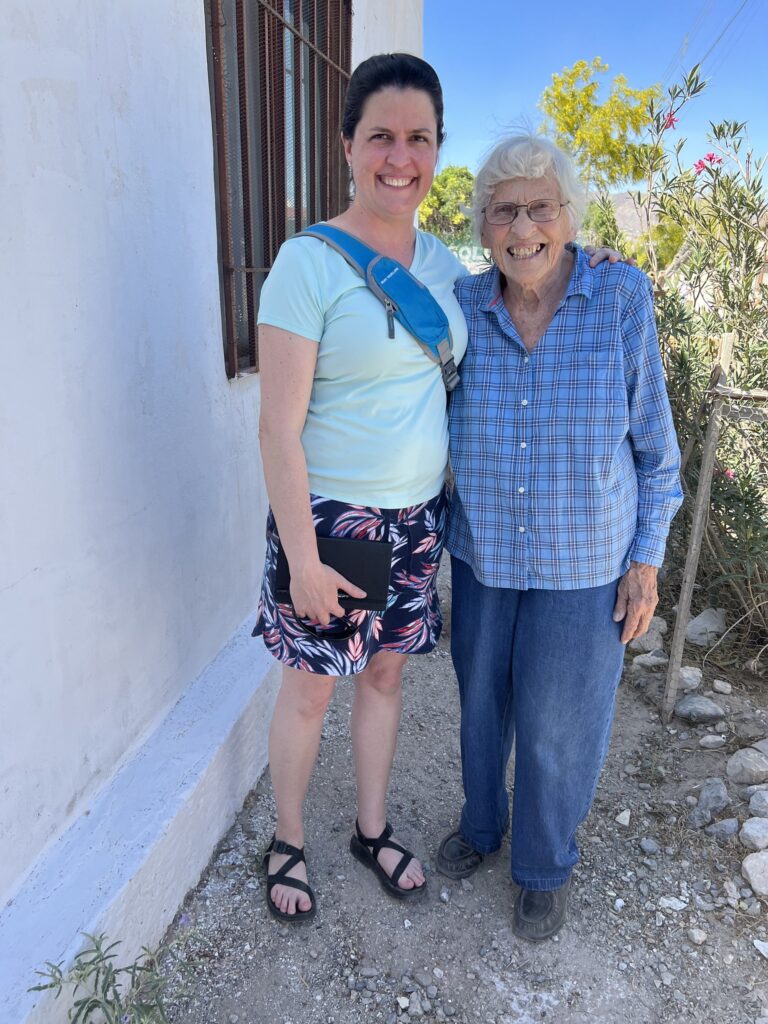By Kari Sims, Director of Service-Learning & Leadership, Mercy Academy, Louisville, Kentucky
A Mercy Border Immersion Experience in El Paso, Texas, and Ciudad Juárez, Mexico, took place May 8-13, 2022. Following is one in a series of reflections from a participant in the experience.
I celebrated the 4th of July at a Major League baseball game this year. Before the unfurling of the giant American flag on the field, the announcer asked us all to pause for a moment of silence to honor the victims of the Highland Park shooting that had occurred earlier that morning. A solemn mood washed over the crowd. As we stood in silence, I wondered how many of us thought of the 53 people who died in the truck just outside of San Antonio, Texas—all in search of something better, in search of a home. After spending time at the border this past May, I cannot stop thinking about what it means to call someplace home.
I arrived in El Paso, Texas, on May 7, unsure what to expect of this border immersion experience. Sister Kathleen Erickson, our guide throughout the journey, began our first prayer with a reading titled “Turning to One Another,” by Margaret Wheatley. One line that stood out to me and encompassed one of the most powerful experiences I had that week was, “Expect to be surprised.”

On the second full day of the program, we visited the “wall,” a 30-foot-high fence with massive steel beams reaching to the sky, with enough space between the slats for a person to put their face through, but not enough to physically pass through. The wall stretched for miles from west to east, separating Anapra, one of the poorest barrios in Juarez, Mexico, from the barren desert just outside of Sunland Park, New Mexico.
Prayerfully walking along the wall, I stopped now and then to peer through those steel beams, feeling that I was intruding on the lives of those whose houses come right up to the wall. While peering through the beams I saw colorful cement-block homes—both finished and unfinished—dirt roads, piles of garbage and cars parked along the way. I heard lively music in the distance and the rhythmic sounds of construction work. Stranded in the middle of the walkway was a colorful piñata which had clearly been used in a recent celebration. All signs of life.
As I walked, a man shouted out to me in English, “How are you?” I could not see him at first. I responded in Spanish, “Bien, ¿y tú?” He emerged from behind the unfinished cement-block wall of a house and began to walk toward me. We conversed for a while in both Spanish and English. He had watched the wall being constructed. There was a moment of quiet, then I looked at him and said that I was sorry. He looked at me, confused, and asked why. I told him I was sorry this ugly wall was built right behind his house and that he could not come across to my side, to my home. He smiled and told me he did not need to cross, because Mexico was his home—his “hogar.”
His words humbled me. I had assumed anyone near that wall would want to be on “my” side. It was a stark reminder of the beautiful life that exists on the other side despite poverty, violence and apparent lack of physical resources.

People traveling to our southern border do so because their communities and homes have been disrupted, often due to policies put in place by the United States, my home. If the leaders of my home, this country, truly understood the power and purpose of community, then the economic policies and border restrictions currently in place would quickly be dismantled. Instead, many feel threatened by what they do not know. They seek power and control instead of finding practical, common-sense ways to share resources across imaginary lines drawn in the sand, now marked by 30-foot-high walls.
The week I spent with the Mercy community at the border was one of deep reflection. In the words of the immersion trip coordinator, Jean Stokan, I must honestly discern the question, “How is God calling me to be more courageous?”
As a Mercy educator and woman of faith, I have a responsibility to share the mission of the sisters with our students and, in doing so, hope to empower them to embrace the Mercy spirit of seeking justice and peace in our world. I must challenge our students and myself to go out into the community and truly encounter those who are affected by injustice, to grapple with the complexity of the systemic issues woven throughout our country’s foundations of which many of us, myself included, are complacent participants.
As St. Paul reminded the Corinthians, “If one member suffers, all suffer together with it; if one member is honored, all rejoice together with it (1 Cor 12:26).” May all of us be courageous enough to open ourselves to the suffering of others, if only to one day rejoice together in community.